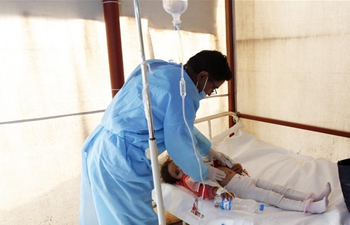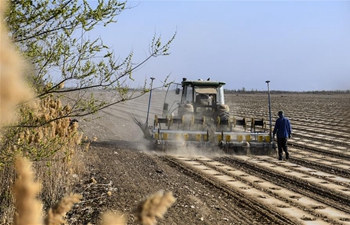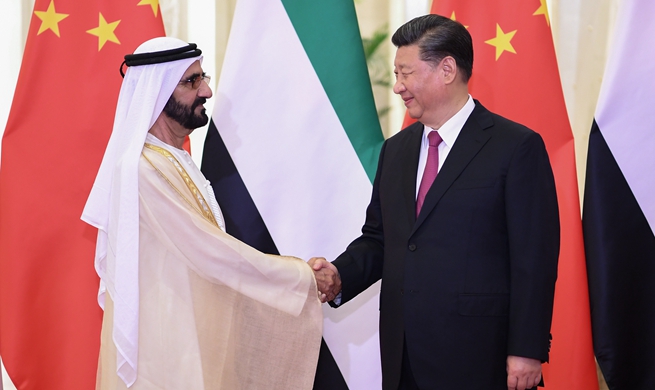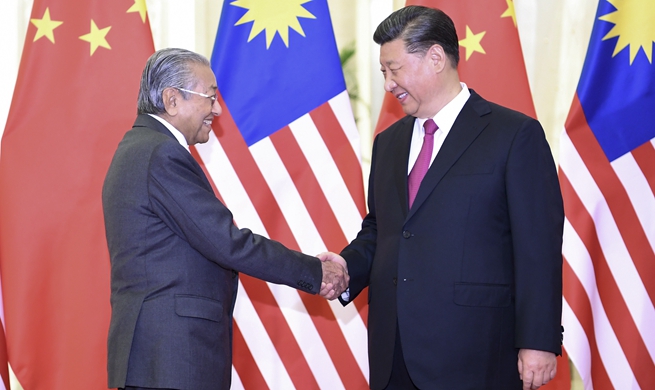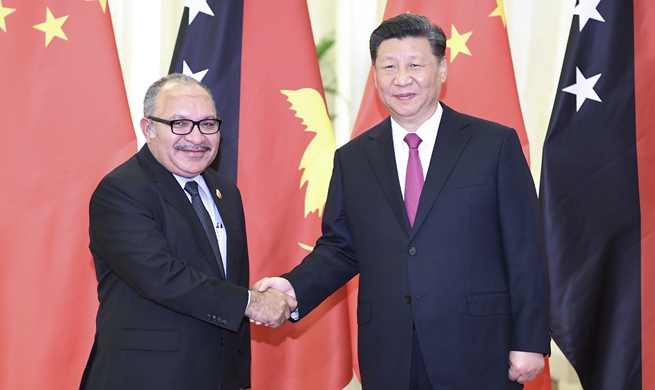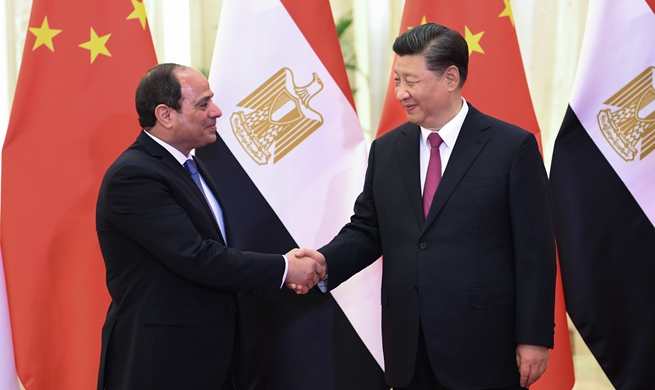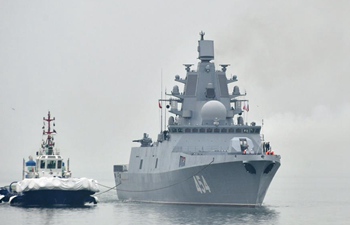WASHINGTON, April 25 (Xinhua) -- The uncertainty surrounding the auto tariffs with which the Trump administration has threatened U.S. trading partners worldwide "may not end soon," a scholar at the Washington-based Peterson Institute for International Economics (PIIE) has said.
In an article published Wednesday on PIIE website, research fellow Jeremie Cohen-Setton argued that although President Donald Trump is due by May 18 to decide whether to levy the punitive duties on imported vehicles and vehicle parts, judging from several precedents, the president may well postpone his final decision.
Directed by Trump, the Department of Commerce launched an investigation last year into whether the auto imports threaten to impair U.S. national security and submitted the report on Feb. 17. Trump has 90 days since then to decide whether to take action.
The investigation was based on Section 232 of the Trade Expansion Act of 1962, the same domestic law that the Trump administration used to justify import tariffs on steel and aluminum. Before Trump entered the White House, Washington last invoked "national security" for trade protection in 1986, when Ronald Reagan was president.
"Although other countries have already brought challenges before the World Trade Organization over the United States' extensive use of the national security exception, the issue will not be settled soon and has generated fears that others will imitate the U.S. example," Cohen-Setton wrote in the article.
The expert said the "sanguine belief" that uncertainty is bound to resolve quickly once a Section 232 investigation is initiated "is misguided, as several tricks can extend the process and the associated uncertainty."
Trump, Cohen-Setton said, may want to negotiate trade agreements with the major auto exporters. "In that case, the Section 232 statute provides for an additional 180 days, which would push back the decision date to November 14."
Citing a similar decision adopted by Reagan in 1988 related to antifriction bearing imports, the scholar said Trump may defer his decision by 110 extra days, just like Reagan did.
"The president can also defer his final decision until another agency has completed a review that relates to the state of the auto industry," he added.
Another scenario where Trump may delay the implementation of the tariffs is that he could hold consecutive investigations, according to Cohen-Setton.
"The Trump administration could terminate the current investigation before making a decision and then open a new Section 232 investigation," he said, offering precedents of both terminating an investigation and starting new ones.
Furthermore, the president could also take no action, or impose weaker restrictions than those recommended by the Commerce Department and then open a new Section 232 investigation, Cohen-Setton said.
The Section 232 statute, he said, "allows the president to ignore Commerce and choose no action or alternatively more benign or more severe actions than those recommended."
The scholar said if Trump, by means of tariff threats, aims to force concessions from U.S. trading partners in ongoing bilateral trade negotiations, "then there is little doubt that the administration will prolong the investigation."
"Unfortunately, it has many ways to extend this period of uncertainty," Cohen-Setton said.


